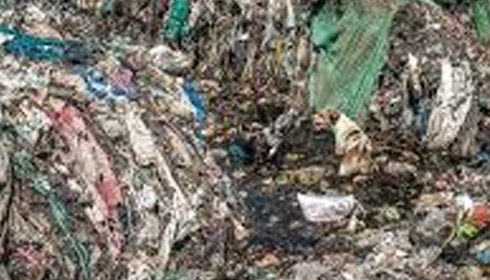
CPCB Unveils Plan to Tackle India's Plastic Pollution Epidemic
The Central Pollution Control Board (CPCB) has taken a decisive step forward by unveiling a robust set of recommendations designed to enhance India’s plastic waste management. This initiative focuses on the rigorous enforcement of Extended Producer Responsibility (EPR) rules, the elevation of data transparency, and the introduction of incentives for sustainable practices. These recommendations present crucial steps to confront the plastic waste crisis, yet their effectiveness is contingent upon robust implementation and the collaboration of all stakeholders involved.
A crucial element of the CPCB’s recommendations is a proposed method to register unlisted Producers, Importers, and Brand Owners (PIBOs) through a “snowball effect,” which would ultimately incorporate a greater number of plastic packaging companies into the regulatory framework. This strategy has the potential to significantly enhance EPR compliance; however, it is imperative that there is active collaboration from state authorities and prompt communication among agencies. The current lack of engagement from state departments represents a significant barrier to this initiative, highlighting the urgent necessity for enhanced interdepartmental communication.
A vital recommendation from CPCB emphasises the necessity of regular quantification and composition analysis of plastic waste in accordance with the mandates set forth by the Plastic Waste Management Rules, 2016. In light of these critical requirements, it is alarming to observe that numerous manufacturing and waste management facilities have demonstrated a concerning lack of compliance. Precise information regarding waste generation is crucial for the efficacy of EPR certificates, which validate that waste has been appropriately managed. The CPCB has put forth a bold initiative to implement standardised templates for tracking processed waste, coupled with robust enforcement measures for those who fail to comply. To achieve effectiveness, it is imperative that regular audits and adequate funding are prioritised, as these are often neglected and underfunded areas.
The CPCB is making a bold move by recommending the reclassification of multilayered plastics (MLPs) from Category II to Category III, signalling a crucial change in its strategy. This change would clearly set apart MLPs, known for their recycling challenges, from other flexible plastics that have achieved notable success in recycling initiatives. The reclassification is a decisive move to compel producers to adopt more sustainable alternatives. The CPCB currently estimates that MLPs account for approximately 20–25% of urban plastic packaging, a stark contrast to the 10% reported on the EPR portal. This discrepancy highlights the urgent necessity for precise data collection, enabling more effective and focused actions.
The significance of India’s informal recycling sector cannot be overstated, and the CPCB has rightly emphasised the necessity of its integration into the EPR framework. The informal sector, encompassing waste pickers and aggregators, is crucial in the fight against plastic waste management. Establishing their involvement in EPR is crucial for advancing sustainability objectives and ensuring financial stability for these workers. To achieve this, it is imperative to establish structured support, formal recognition, and robust financial inclusion mechanisms that guarantee seamless integration.
CPCB has taken a decisive step to ensure that recycling certificates are not undervalued by recommending fair pricing for EPR compliance. Setting clear baseline costs for plastic waste collection and recycling is crucial to combating the detrimental practices of “certificate trading” that compromise genuine recycling initiatives. Implementing regulated pricing is not merely a suggestion; it is a necessity that demands thorough cost studies. However, it is crucial to acknowledge that this initiative may encounter significant opposition from market-driven forces.
The recent recommendations from the CPCB present a comprehensive strategy for tackling plastic waste management in India; however, significant hurdles persist in their implementation. Achieving success demands unwavering communication, complete data transparency, strict regulatory enforcement, and the seamless integration of the informal sector. If we effectively implement these strategies, India can make significant strides towards achieving a sustainable, circular economy in the realm of plastic waste management.